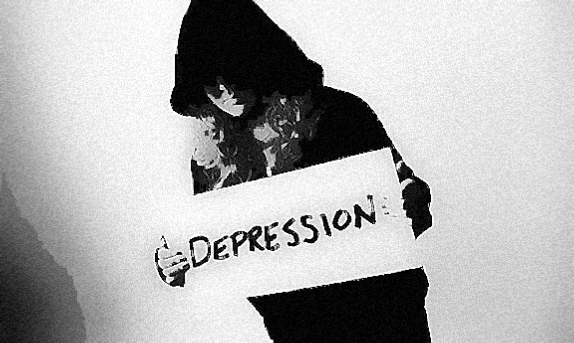What is Teen Depression?
Most of us feel sad or unhappy at various times in our life, but teenage depression that extends for a longer lengths of time (usually more than 2 weeks) and that interferes with our daily life is considered to be major depression. This type of teen depression is one that isn’t to be taken lightly and should be treated as early as possible to prevent further problems.
Studies and statistics show that approximately 1 in 8 adolescents may be suffering from depression, a very scary statistic. Even more frightening is that only about 30% of these children who are suffering emotional/mental turmoil are receiving any treatment for it.(1)
Many teens have mood swings or are quick to express anger, but how do you distinguish between normal teenage angst and a more serious problem?
Teenage Depression Warning Signs
Although at times teens will normally go through some of these following signs, when they occur alone for extended periods of time and/or occur in conjunction with each other it’s important to look at what may be causing them.
- Sadness or hopelessness
- Low self-esteem
- Sluggishness (less active)
- Substance abuse
- Spending more time alone (this includes time alone from you as parents and time away from their regular friends)
- Decrease in desire to do things they used to like to do (sports, activities, hobbies)
- Physical ailments (headaches, appetite problems, sleeping problems)
- Problems in school (falling grades, getting into trouble, not paying attention in class)
- Talking about death or suicide (never to be taken lightly)
- Not caring about appearance
- Running away from home
- Blaming self for things that are not their fault
- Unable to concentrate and/or make decisions
Who’s At Risk for Teen Depression?
Every teen is at risk in developing major teen depression, but there are certain groups of individuals that are more prone to this type of disorder.
- Females are more likely to develop adolescent depression than males (about 2x more often)
- Abused/neglected individuals
- Children that have or have had long-term/chronic illnesses
- Teens that have a family history of depression or other mood disorders
- Teens with family disruptions at home (divorce, death in family, etc)
- Teens with low self-esteem
Adolescent Depression Treatment Options
Depending on the degree of depression your teen is determined to have, there are several forms of treatment that are available. Only a mental health professional is qualified to determine what would be the best course of treatment for your child. All types of treatment can take place either at home and/or in a residential setting.
- Medicine (anti-depressants – usually used in addition to other forms of therapy)
- Individual Therapy -Cognitive Behavioral Therapy – helps to teach healthy ways of thinking
- Interpersonal Psychotherapy – helps to determine interpersonal issues/situations that may be the cause of the depression
- Group Therapy – individuals with the same affliction meet together to discuss their problems and in turn help each other through their situations
Major adolescent depression, if left untreated, will rarely go away on it’s own. Relapses are extremely common and should always be prevented. Other forms of mental health illnesses are more common as well in depressed teens. If teens are left without help, they may decide to take things into their own hands. They can turn to alcohol and/or drug abuse to help make their pain go away. At it’s worst, teen depression can lead to suicide. According to www.teendepression.org, teen suicide is the 3rd leading cause of death among young people ages 15-24. We must all do our part in preventing these outcomes as best we can. Early intervention is key. Watch for those warning signs and if observed, seek the necessary help right away.
Teen Depression Sources:
www.nih.gov
www.teendepression.org
www.aacap.org
